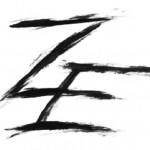Sylvia Plath: The Bell Jar
Every once in a while, a piece of art reaches out and gets a hold of you and doesn’t let go. Like somebody has slipped beneath the veil and spoken directly to your heart, as if this one moment was waiting all along just for you to realize. That’s what good art does. It stems from the mystic, moves to the brain, frees itself through the senses, and then becomes a part of you.
At least, that’s how I felt reading Sylvia Plath’s The Bell Jar.
As an artist, the pull of depression hits me on a near daily basis. The lowest lows, the highest highs, there is no happy medium. Just a swing from one extreme to the next. In order to capture the human experience, I have to feel everything, all the emotions, both the good and the bad and everything in between.
Sylvia poignantly captures what it’s like to be a struggling individual or artist, caught between it all. To be young in a timeless existence. To feel small in a world constantly growing. To feel trapped by invisible forces. To feel caught between happiness and sadness, the two interspersed together so effortlessly that it’s easy to mistake down for up and up for down.
Our greatest struggle as a human race is finding our place in the world and discovering who we really are. It’s so easy to get absorbed in the herd or lose yourself in false advertisement. Shuffling through life’s bullshit can be a full-time job. Sylvia captures this struggle poetically and tragically. Her pain is your pain and you grasp what it’s like trying to be yourself in a world that wants you to be someone else.
But don’t just take my word for it. Here’s Sylvia Plath at her best. When I first read these lines I was completely blown away. Hopefully, you are too. Oh, and by the way, for all you fans of Aziz Ansari out there, these same lines made an appearance on the season finale of Master of None.
I felt like a racehorse in a world without racetracks or a champion college footballer suddenly confronted by Wall Street and a business suit, his days of glory shrunk to a little gold cup on his mantel with a date engraved on it like the date on a tombstone.
I saw my life branching out before me like the green fig tree in the story.
From the tip of every branch, like a fat purple fig, a wonderful future beckoned and winked. One fig was a husband and a happy home and children, and another fig was a famous poet and another fig was Ee Gee, the amazing editor, and another fig was Constantin and Socrates and Attila and a pack of other lovers with queer names and offbeat professions, and another fig was an Olympic lady crew champion, and beyond and above these figs were many more figs I couldn’t quite make out.
I saw myself sitting in the crotch of this fig tree, starving to death, just because I couldn’t make up my mind which one of the figs I would choose. I wanted each and every one of them, but choosing one meant losing all the rest, and, as I sat there, unable to decide, the figs began to wrinkle and go black, and, one by one, they plopped to the ground at my feet.





